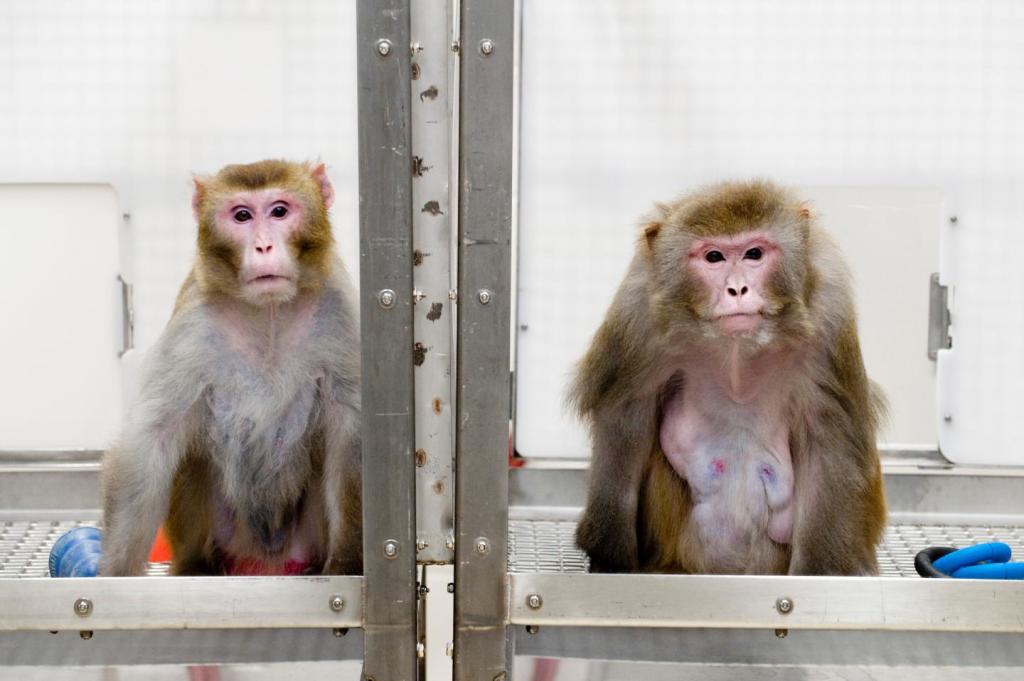
A 2009 image of rhesus monkeys in a landmark study of the benefits of caloric restriction. The then 27-year-old monkey on the left was given a diet with fewer calories while the then 29-year-old monkey on the right was allowed to eat as much as it liked. (Image by Jeff Miller/University of Wisconsin-Madison)
A few years ago, two research teams set out to answer the same question: how does a low-calorie diet affect rhesus monkeys’ health and survival? Researchers initially arrived at slightly different answers; however, after a recent collaboration and re-evaluation of pooled data from the two studies, they can say with certainty: when it comes to primates, consuming fewer calories leads to a longer, healthier life. Teams found that initial studies produced different results because of the subjects’ ages, the type of food used in the studies, and food intake amount. One of the key results of the new analysis shows that female monkeys are not as vulnerable to fat sensitivity as males. Scientists believe this result is particularly important in primates and likely translates to humans.
Authors:
Julie A. Mattison, Ricki J. Colman, T. Mark Beasley, David B. Allison, Joseph W. Kemnitz, George S. Roth, Donald K. Ingram, Richard Weindruch, Rafael de Cabo & Rozalyn M. Anderson
Corresponding author:
Ricki Colman, Wisconsin National Primate Research Center, Email: colman@primate.wisc.edu
Original paper published in Nature Communications on January 17, 2017.


